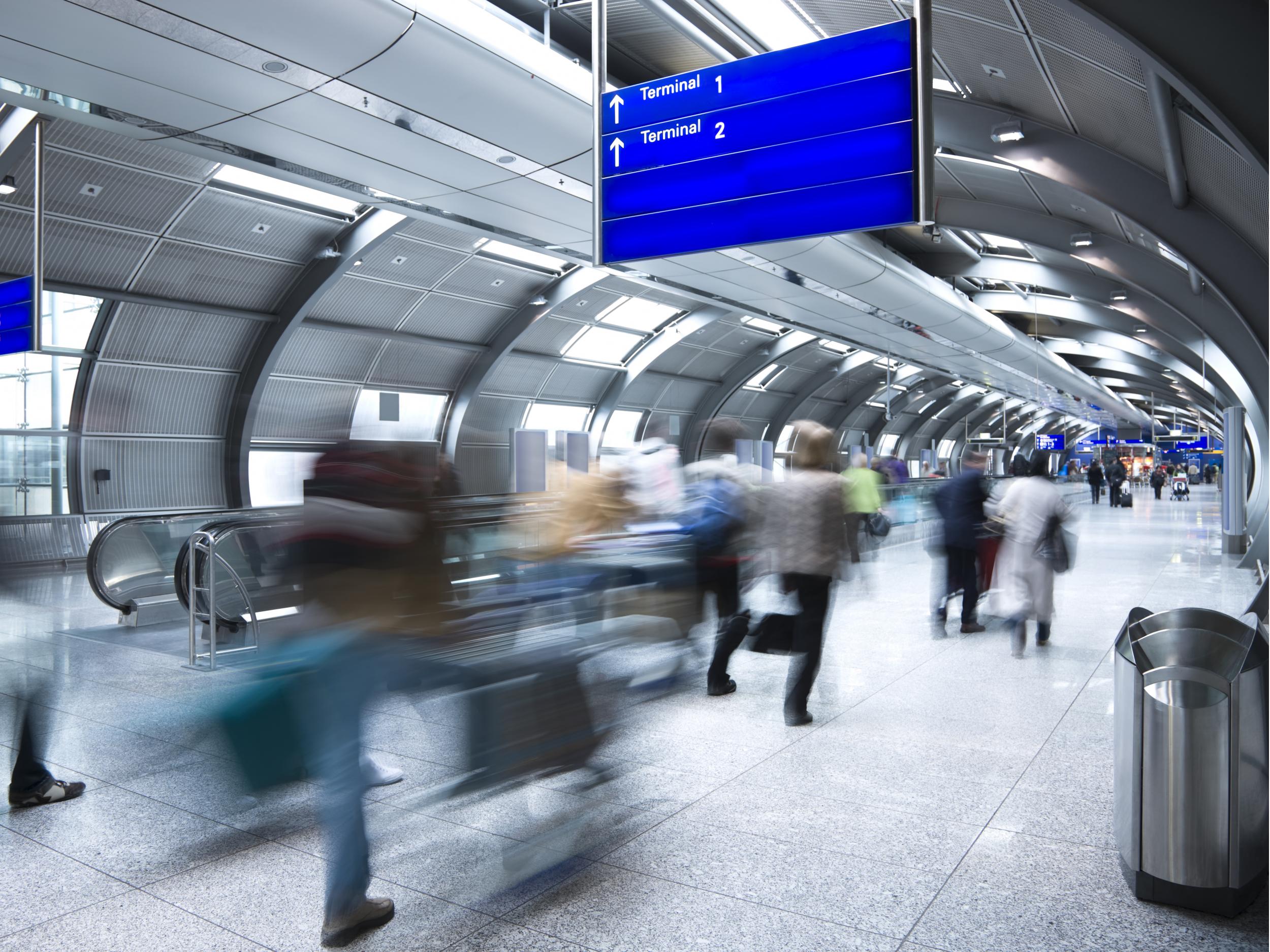Turkish airport sign warns travellers about Sweden having 'highest rape rate worldwide'
Warning comes days after a diplomatic spat in which the Swedish foreign minister angered Turkish politicians by publicly criticising child rape legislation

A news ticker at a Turkish airport has warned travellers about the prevalence of rape in Sweden.
The screen at Istanbul's Ataturk Airport displayed a headline lifted from the Turkish newspaper Güneş, which claimed Sweden had the “highest rape rate worldwide”.
A photograph of the ticker was shared on social media on Friday morning.
The headline came days after a diplomatic spat in which the Swedish foreign minister angered Turkish politicians by publicly criticising Turkey's legislation on child rape.
Sweden has the most recorded rapes per capita in Europe, but not in the world.
Sweden's high rape rate could be down to more people in the country reporting sexual assault, a more expansive legal definition of rape, and a better trained police force than in other countries, rather than reflecting a greater number of actual incidents.
In addition to far more acts legally constituting rape in Sweden than anywhere else in the world, women who report sexual assault in the country are less likely to be stigmatised than in other places, making them less afraid to go to the authorities.
A report by the European Union Agency for Fundamental Rights which accompanied data on violence against women across EU member states, said it was important to take a number of factors into account when interpreting the numbers.
“The observed variations between EU member states in the prevalence rates of sexual harassment can be explained by a number of factors looked at in combination," the report said.
“For example, the different level of acknowledgement of sexual harassment in national legislation and its prioritisation in specific policies and political debates might be reflected in women’s overall level of awareness of sexual harassment as a fundamental rights abuse, and their disclosure of such experiences.”
Klara Selin, a sociologist at the National Council for Crime Prevention in Stockholm, told the BBC that countries' rape rates cannot be accurately compared, because police procedures and legal definitions vary around the world.
“In Sweden there has been this ambition explicitly to record every case of sexual violence separately, to make it visible in the statistics,” she said.
“So, for instance, when a woman comes to the police and she says my husband or my fiance raped me almost every day during the last year, the police have to record each of these events, which might be more than 300 events. In many other countries it would just be one record - one victim, one type of crime, one record.”
Selin added that public debate about sexual assault in Sweden over the past two decades has had the effect of raising awareness and encouraging women to go to the police if they have been attacked.
Güneş, which is owned by a Turkish businessman with ties to President Recep Tayyip Erdogan, did not go into detail about the figures behind its headline, or discuss the complex factors that influence rape rates.
Instead the article focused on what it perceived as hypocrisy from Swedish ministers, who recently criticised Turkey's rape legislation.
Swedish foreign minister Margot Wallström said Turkey had "legalised sex with children", after Turkey's constitutional court voted to remove a legal provision that automoatically classifies sexual activity with children between the ages of 12 and 15 as child sexual abuse.
Deputy Prime Minister Memet Simsek tweeted that Ms Wallström should “get her facts right”, while Turkish Foreign Minister Mevlut Cavusoglu said in televised comments cited by AFP: “It is a scandal for a foreign minister to post such a tweet based on false news or speculation. The Swedish envoy was summoned to Ankara to discuss the incident.
An airport news ticker featured in the previous argument too -- the accusation that Turkey had legalised sex with children was first publicised by an Austrian newspaper, and the headline was reported on a news ticker in Vienna airport.
Join our commenting forum
Join thought-provoking conversations, follow other Independent readers and see their replies
Comments
Bookmark popover
Removed from bookmarks